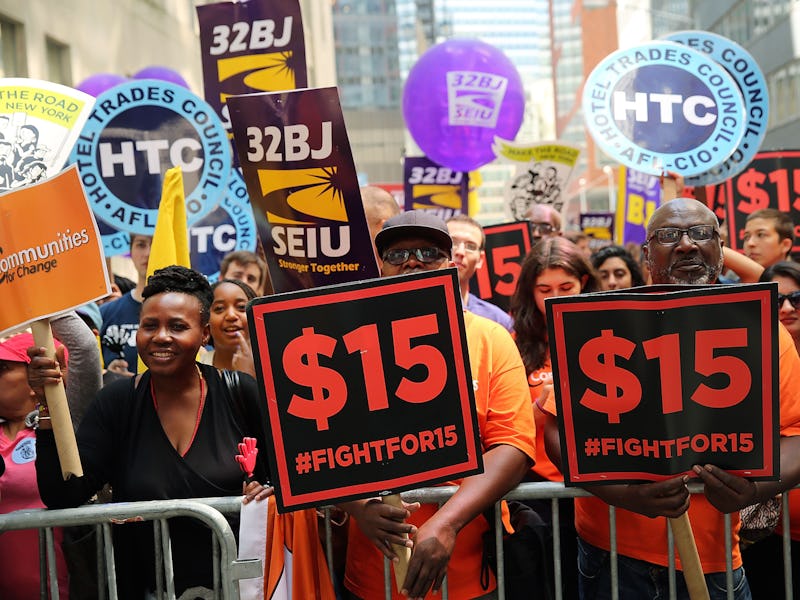Robots Will Take Fast-Food Jobs, But Not Because of Minimum Wage Hikes
A $15 an hour fry cook won't change the inevitable.

Since New York raised its minimum wage for fast food workers in July, there’s been a lot of talk about how the Fight for 15 would hurt low-income workers by destroying jobs and ruining lives. But in 2015 there’s a new angle to this that’s different than every other wage hike in American history that could be even more ruinous for fast-food workers: The possibility that restaurants can entirely replace them with a robot staff.
The Washington Post reports that as legislators give more consideration to nationwide raises, wage hikes have given the restaurant industry new incentive to upgrade its 2.4 million servers, 3 million cooks, and 3.3 million cashiers. That would be easier at cheap restaurants than mid-scale to fine dining. People are willing to pay out three bills a plate for something Gordon Ramsay prepared because he’s Gordon Ramsay, but where are the bragging rights for sampling the latest concoction from ChopBot360? And A.I. just isn’t advanced enough yet to coral the slavering hoards at the Cheesecake Factory on Christmas Eve.
But places like McDonald’s, attractive more for convenience and affordability than ambience or culinary pedigree, are more vulnerable. Salon reports San Francisco start-up Momentum Machines Inc., designer of an automated burger chef, plans to raise its profits at the expense of the fry cooks, and is at least being honest about it. “Our device isn’t meant to make employees more efficient,” company co-founder Alexandros Vardakostas told reporters. Salon further reported that Vardakostas’ company estimated that the average fast food restaurant spent about $135,000 annually on labor for burger production, an amount it could more than save just a year after conscripting robots for the same purpose.
Then there’s Japan’s Kura sushi chain, which has already moved to automation in its 262 restaurants and filleted its expenses in the process. Panera Bread announced in April that it was investigating automated service, with self-ordering kiosks and mobile ordering at all its locations in the next few years.
The eagerness to upgrade their tech even before the wage increases exposes a false choice when people argue that wage hikes are forcing fast food chains to replace workers. Because even at $7.50 an hour, if Momentum Machines’ numbers are correct, chains still save money on robots. Making the savings more attractive might speed up the process, but it doesn’t change the trajectory.
Or, as Dave Brewer, chief operating officer of Middleby Corp., owner of dozens of kitchen equipment brands puts it to the Washington Post: “The innovation and the automation, they’re going after it even before the wages go up. Why wait?”